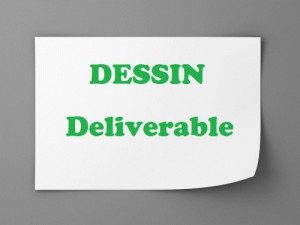D12.2 Report on financing approaches conducive to water sector innovation available

- Version Final
- Download 2337
- File Size 1,7 MB
- File Count 1
- Create Date July 15, 2015
- Last Updated November 20, 2017
- Download
The DESSIN project aims to demonstrate and promote innovative solutions to water-related challenges with a focus on (i) water quality issues related to the implementation of the Water Framework Directive (WFD), and (ii) water scarcity. Work Package 12 of DESSIN specifically aims at identifying innovative and innovation-friendly modes of governance, financing and payment. The implementation of economic policy instruments (EPIs) in water management has strong potential for creating comparatively rapid changes in the attractiveness and uptake of new technologies by the private sector. The aim of this deliverable is to examine the use of innovation-friendly modes of financing and payments in the context of urban water management. Objectives are i) to define key terms, ii) provide a synthetic overview of the state-of-play and existing experiences, and iii) identify existing gaps. The research is based on a range of secondary sources, including peer-reviewed and grey literature review, and draws on a number of results of past other European projects (e.g. EPI Water, POLICYMIX and CECILIA 2050) and the mature case-studies of WA1 of the DESSIN project (Aarhus, Emscher, Zaragoza).
The introduction provides a general discussion about innovation and economic instruments. A definition of EPIs is provided. The second chapter deals with innovation in the water sector, its trends and economic instruments’ effects on it. The third chapter deals with the complex issue of financing innovation, including a discussion about the role of public interventions on incentivising innovation uptake including public procurements, pricing policies and financing frameworks. The role of the European Investment Bank in financing water innovation is explored. The fourth chapter specifically deals with the use of payments under the ecosystem service approach for innovation uptake in urban water management. The final chapter is devoted to conclusions and some lessons learned.
Most importantly, the Annexes provide detailed reporting on potential economic instruments for supporting innovation uptake in urban water management. Annex A includes descriptions and information related to eight economic instruments used to finance SME. Annex B presents a detailed list of water projects financed by the European Investment Bank. Annex C includes a detailed description of some innovative water instruments.
| File | Action |
|---|---|
| DESSIN D12-2-revised.pdf | Download |